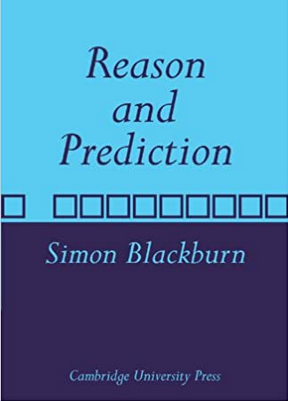Newly released
This book is new and will be uploaded as soon as it becomes available to us and if we secure the necessary publishing rights.

Reason and Prediction Book PDF
(0)
Author:
Simon BlackburnNumber Of Reads:
194
Language:
English
Category:
Social sciencesSection:
Pages:
180
Quality:
excellent
Views:
1582
Quate
Review
Save
Share
New
Book Description
An original study of the philosophical problems associated with inductive reasoning. Like most of the main questions in epistemology, the classical problem of induction arises from doubts about a mode of inference used to justify some of our most familiar and pervasive beliefs. The experience of each individual is limited and fragmentary, yet the scope of our beliefs is much wider; and it is the relation between belief and experience, in particular the belief that the future will in some respects resemble the past and the unobserved the observed, which forms the subject of this book. Dr Blackburn's first aim is to state the problem of induction properly, to show that there does exist a genuine problem immune to the solutions in vogue at present, yet no tin principle insoluble. He gives an extended and original account of the concept of a reason and goes on to discuss prediction. In the end Dr Blackburn produces a rationale for belief in certain short-term predictions based on his reinterpretation of the classical principle of indifference. He claims that a justification for induction can be found along the lines he has suggested and must indeed be found there if anywhere.
Simon Blackburn
Simon Blackburn FBA is an English academic philosopher known for his work in metaethics, where he defends quasi-realism, and in the philosophy of language; more recently, he has gained a large general audience from his efforts to popularise philosophy.
He retired as the professor of philosophy at the University of Cambridge in 2011, but remains a distinguished research professor of philosophy at the University of North Carolina at Chapel Hill, teaching every fall semester. He is also a Fellow of Trinity College, Cambridge, and a member of the professoriate of New College of the Humanities. He was previously a Fellow of Pembroke College, Oxford and has also taught full-time at the University of North Carolina as an Edna J. Koury Professor. He is a former president of the Aristotelian Society, having served the 2009–2010 term. He was elected a Fellow of the British Academy in 2002 and a Foreign Honorary Fellow of the American Academy of Arts & Sciences in 2008.
Read More
Book Currently Unavailable
This book is currently unavailable for publication. We obtained it under a Creative Commons license, but the author or publisher has not granted permission to publish it.
Rate Now
5 Stars
4 Stars
3 Stars
2 Stars
1 Stars
Reason and Prediction Quotes
Top Rated
Latest
Quate
Be the first to leave a quote and earn 10 points
instead of 3
Comments
Be the first to leave a comment and earn 5 points
instead of 3